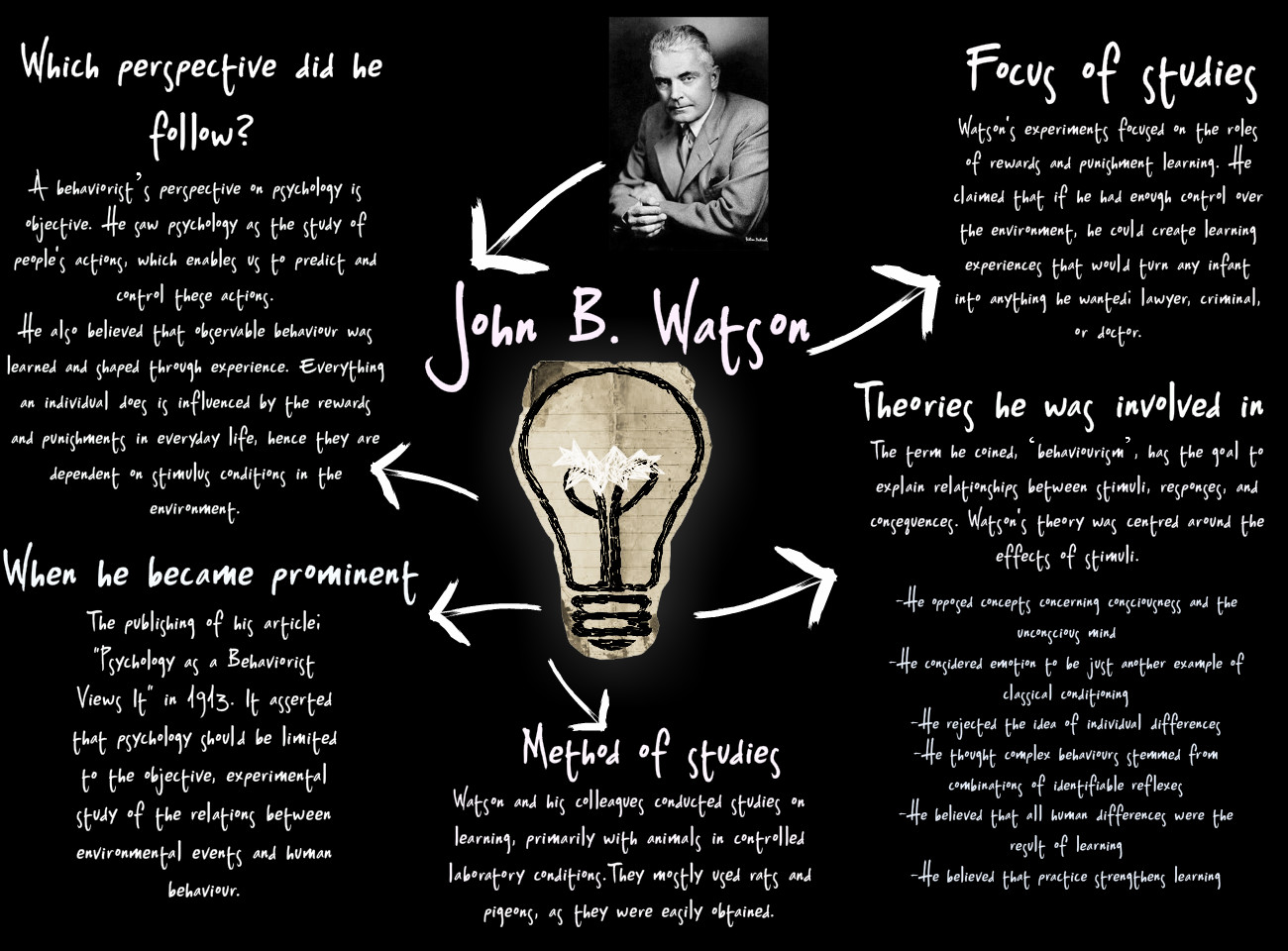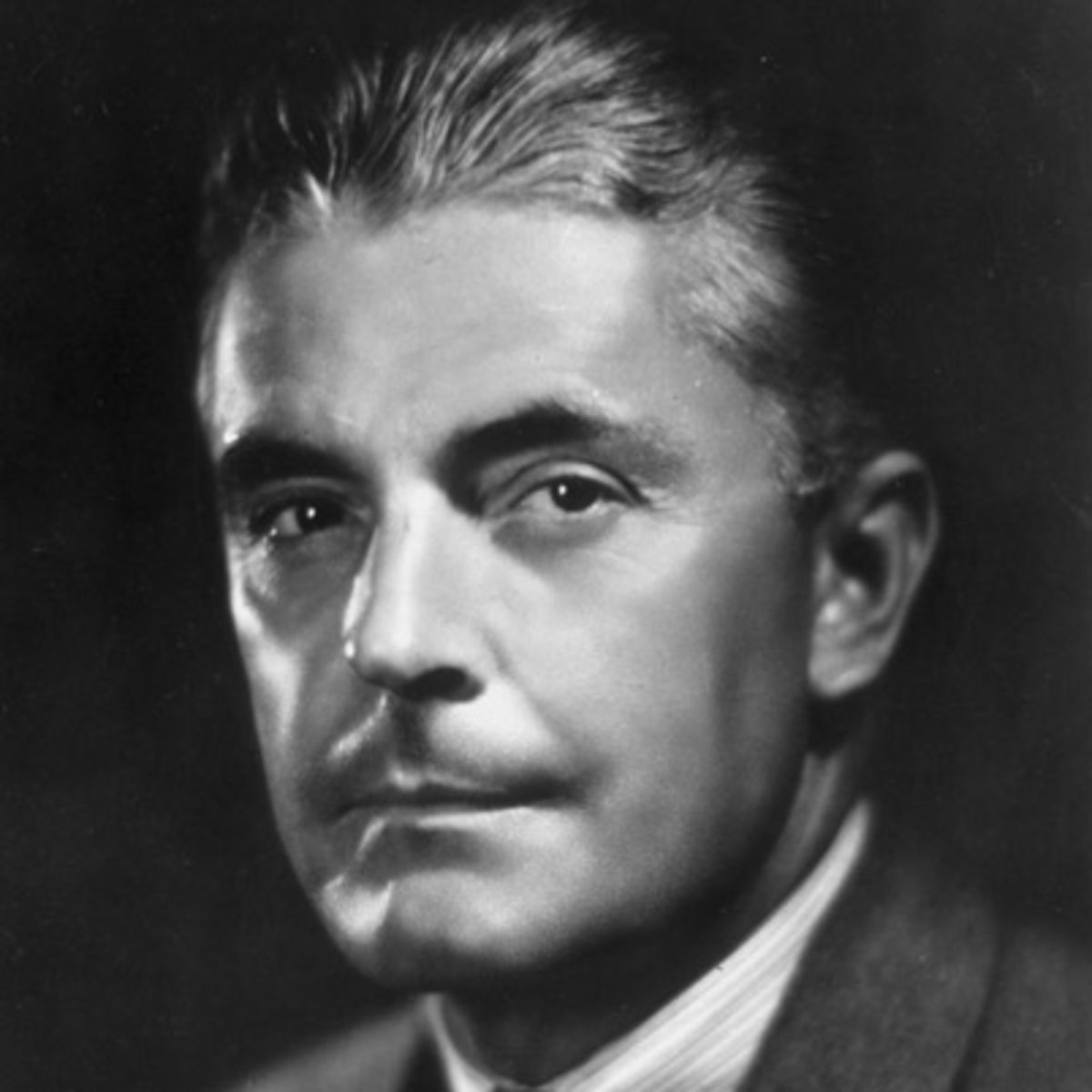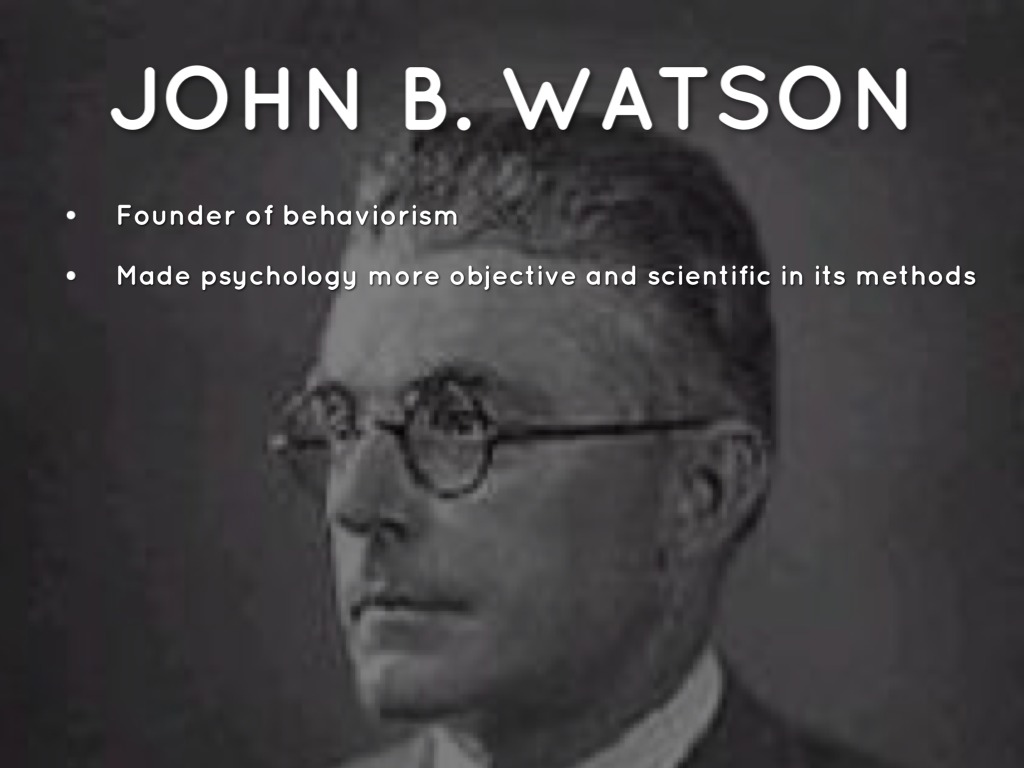John B. Watson: The Mind Behind Behaviorism – A Look At His Life And Impact
Have you ever wondered about the people who shaped how we think about human actions? Well, John B. Watson, you know, stands out as a truly significant figure in psychology. He is often recognized for starting a whole new way of looking at behavior, a scientific approach called behaviorism, which really changed things.
This approach, it actually pushed for studying only what we can see and measure, like reactions to things around us. So, instead of trying to figure out what goes on inside someone's head, Watson believed we should focus on observable actions. This idea, it really took hold in the United States, especially during the 1920s and 1930s, becoming a very dominant way of thinking in psychology for a good while.
We're going to take a closer look at this fascinating person, John B. Watson, and his big ideas. You will find out about his journey, from his early life to his famous studies, and how his work, you know, still affects how we understand ourselves today. It's quite a story, really, about someone who saw behavior in a totally new light.
Table of Contents
- Who Was John B. Watson? A Brief Biography
- Personal Details and Early Life
- The Birth of Behaviorism
- Key Experiments and Ideas
- Controversies and Views on Child Rearing
- Watson's Lasting Legacy in Psychology
- Frequently Asked Questions About John B. Watson
Who Was John B. Watson? A Brief Biography
John Broadus Watson, you know, is often called the father of behaviorism. He was an American psychologist, and he truly played a big part in making behaviorism a thing. This school of thought, it really puts a lot of emphasis on studying behavior that you can see, rather than trying to figure out what's going on inside someone's head, like their thoughts or feelings.
Born in 1878, Watson, you see, made a lot of important contributions to how we think about human behavior. His research and theories were quite groundbreaking for their time. He studied learning and conditioning in both animals and people, and his work, it really laid the groundwork for a lot of what we know about behavioral psychology today.
He got his doctorate in psychology from the University of Chicago in 1903. This was, in a way, the start of his serious academic work. His ideas, they really shaped this area of science for several decades during the 20th century. Watson, you know, was a key person in developing classical conditioning, which Ivan Pavlov also worked on, and his ideas helped lead to operant conditioning, which B.F. Skinner later made famous.
Personal Details and Early Life
John Broadus Watson was born in 1878, specifically in Travelers Rest, South Carolina. He passed away in 1958, at the age of 80. His early life, it seems, had some challenges. Due to his parents getting a divorce, he apparently became a bit of a troublemaker, both in school and just in his daily life.
Despite these difficulties, and what was described as laziness and violence in school, he was, quite remarkably, accepted to Furman University when he was just 15 years old. After he finished his studies there, he decided to go to the University of Chicago in 1900. Here, Watson, you know, really focused on studying the British empiricists, which helped shape his later thinking about how experience affects us.
His nationality was American. He was, in some respects, a controversial person throughout his career, but his impact on psychology is undeniable. He made a very big contribution to the field, and he is often given credit for establishing the school of psychology that we know as behaviorism. This, you know, then influenced many different areas, even things like how people thought about raising children.
| Detail | Information |
|---|---|
| Full Name | John Broadus Watson |
| Born | January 9, 1878 |
| Birthplace | Travelers Rest, South Carolina |
| Died | September 25, 1958 (age 80) |
| Nationality | American |
| Education | University of Chicago (Ph.D. in Psychology, 1903), Furman University |
| Known For | Founder of Behaviorism, "Little Albert" Experiment |
The Birth of Behaviorism
Watson, you know, really promoted a big change in how psychology was viewed. He did this through a speech he gave in 1913 at Columbia University. This speech, it was titled, "Psychology as the Behaviorist Views It," and it truly set the stage for his ideas. He argued that psychology should be a science, just like physics or chemistry, and that meant focusing on things you could actually see and measure.
His view, often called Watsonian behaviorism, was pretty clear: psychology should stick to the objective, experimental study of how environmental events relate to human behavior. He believed that internal experiences, like thoughts or feelings, couldn't be directly observed. So, because of that, he felt they had no place in scientific psychology. This was, in a way, a radical idea at the time.
During the 1920s and 1930s, his approach became the most popular kind of psychology in the United States. It was, you know, a very influential time for his ideas. This methodological behaviorism, as it was sometimes called, really focused only on behaviors that were observable and measurable, completely rejecting the study of things like desires or inner feelings.
Key Experiments and Ideas
John B. Watson's work wasn't just about theories; he also did a lot of research. He spent quite a bit of time studying animal behavior, which helped him form his ideas about learning. But, you know, he is probably most famous for something else, something that really showed his beliefs about conditioning in action.
The "Little Albert" Study
Watson's most famous experiment, it's known as the "Little Albert" study, truly demonstrated his ideas about how fears can be learned. In this study, he showed how a young child could be conditioned to fear something that was originally neutral. This was, in a way, a very powerful example of classical conditioning at work, influenced by the ideas of Ivan Pavlov.
The experiment involved presenting a white rat to a baby named Albert, who at first, showed no fear of it. Then, every time the rat appeared, a loud, startling noise was made. Over time, Albert, you know, started to associate the rat with the scary noise and eventually became afraid of the

John B Watson Quotes. QuotesGram

John B Watson Quotes. QuotesGram

John B Watson Quotes. QuotesGram